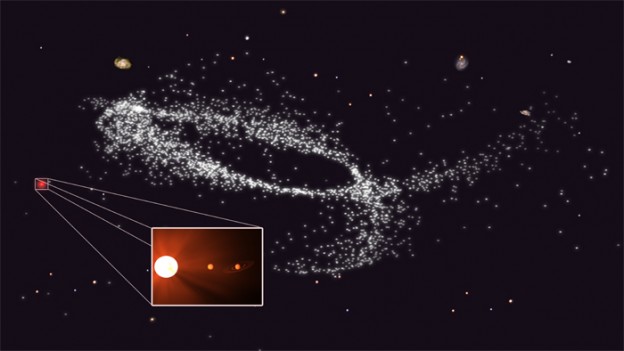Duration: 45 minutes
First broadcast: Thursday 04 October 2007
Melvyn Bragg and guests discuss Antimatter, a type of particle predicted by the British physicist, Paul Dirac. Dirac once declared that “The laws of nature should be expressed in beautiful equations”. True to his word, he is responsible for one of the most beautiful. Formulated in 1928, it describes the behaviour of electrons and is called the Dirac equation.
But the Dirac equation is strange. For every question it gives two answers – one positive and one negative. From this its author concluded that for every electron there is an equal and opposite twin. He called this twin the anti-electron and so the concept of antimatter was born.
Despite its popularity with Science Fiction writers, antimatter is relatively mundane in physics – we have created antimatter in the laboratory and we even use it in our hospitals. But one fundamental question remains – why isn’t there more antimatter in the universe. Answering that question will involve developing new physics and may take us closer to understanding events at the origin of the universe.
With Val Gibson, Reader in High Energy Physics at the University of Cambridge; Frank Close, Professor of Physics at Exeter College, University of Oxford; Ruth Gregory, Professor of Mathematics and Physics at the University of Durham
http://www.bbc.co.uk/programmes/b00808w8

